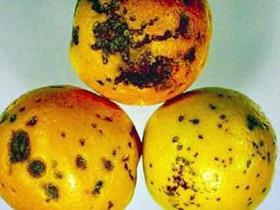
South African citrus sources have called the latest move by the European Union to ban imports of the country’s citrus 'inappropriate' and 'disappointing'.
The European Union yesterday (28 November) imposed what amounts to a provisional ban on imports of citrus from South Africa, a move aimed at eliminating any potential risk of the fungal disease citrus black spot (CBS) being carried into Europe by the fruit and establishing itself on the continent.
Professor Vaugh Hattingh, head of the Citrus Research Institute based in Stellenbosch, says it is disappointing for the EU to have taken such a move while ongoing discussions are taking place between the two parties to resolve the issue of Citrus Black Spot.
“Although the EU announcement only concerns the 2013 season, it is a high symbolic step and has increased the risk significantly that the ban could be repeated or extended in 2014,' Hattingh explains.
Speaking on behalf of the South African citrus industry, Hattingh says the move is inappropriate while the findings of a European Food Safety Authority report are still being awaited. The report is expected to be published towards the end of December and Hattingh says South African industry representatives will soon travel to Europe to meet with the relevant parties.
“The EU has taken this step despite the significant efforts taken by the South African industry this season to limit the threat that CBS may have for European producers. It has also been taken directly in contrast of assurances made by the president of the European Union given in July that the EU would not unilaterally introduce a ban.
“We will continue with our efforts on both industry level and in negotiations with the EU to find a solution,” he continues, adding that the South African industry faces a particularly uncomfortable break at the end of their season while they await the outcome. “I doubt that any South African citrus grower will sleep easily this Christmas holiday.”
The concerns are understandable, with about 40 per cent of the South African citrus crop sold in the European Union. Although the EU ban announced yesterday excludes the so-called ‘citrus black spot free’ areas in South Africa, they do not really offer an alternative for sourcing South African citrus for marketing in the EU.
If a ban materializes in 2014, the European trade will have to do without South African lemons and grapefruit and a huge part of the Navel and Valencia crops. They will also have to compete with other markets in the world now sourcing fruit form the black spot free areas.
The South African Trade Minister and the European Trade Commissioner have recently been involved in very public disagreements, following South Africa’s decision to review its trade agreements with the EU which were concluded in the 1990s.
Observers say these disagreements will make the task of the citrus industry to find a solution in Europe more difficult because ‘in Brussels there are wheels within wheels’ and actions are often linked to achieve certain outcomes.



